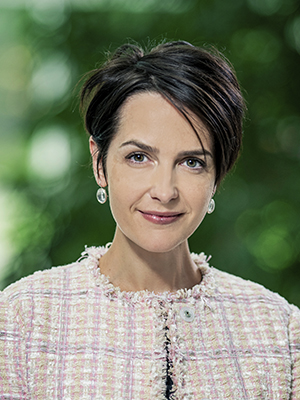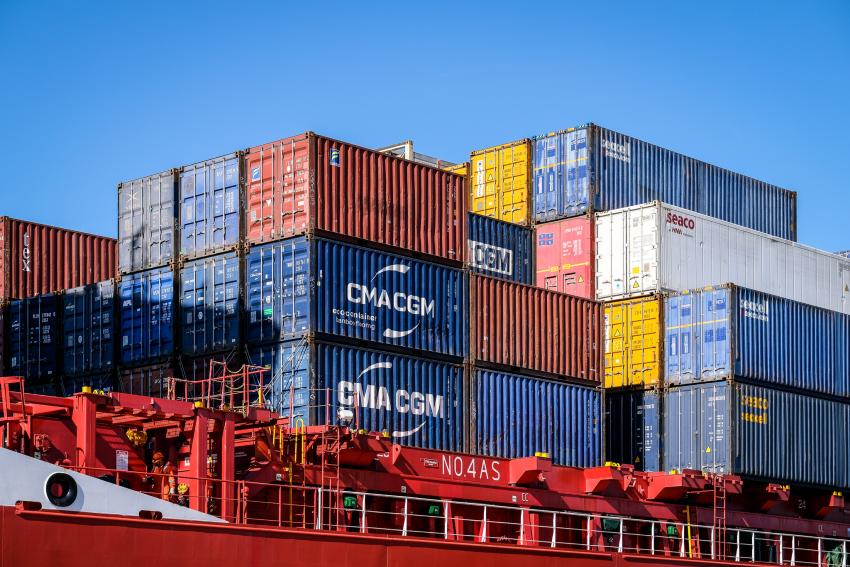Foto: Viesturs Radovics / Delfi
Cargo turnover indicators of the Freeport of Riga reached 7.51 million tons during 4 months of the current year, which is 8.2% more than the volume transshipped during four months of the previous year. The positive cargo dynamics has been maintained by the growth in the energy cargo segment and, most importantly, by the growth in the container cargo segment. 1.53 mln. tons of container cargo have been transshipped within 4 months of this year, which is 9.6% more than within the same period last year.
“Cargo turnover figures for the first four months of the current year remain positive and stable, but given the global turmoil and the uncertainty caused by the war in Ukraine, they should be evaluated with caution in the medium term. Energy cargo has played a significant role, accounting for about a quarter of the total four-month cargo volume, furthermore, there has been a significant upward trend in container cargo segment. The cargo transshipment in the world never stops and, taking into account the economic sanctions imposed on Russia and Belarus, the global logistics chains in Europe and in the world are looking for alternative routes, where the port of Riga might also play a certain role. The countries of Central Asia, which do not have direct access to the sea, but for which the EU and the USA are an important export market for raw materials and goods, are of special importance,” said Ansis Zeltins, the Freeport of Riga CEO.
“After all the initial uncertainty, we see that leading container line operators such as Maersk, MSC and others, start to evacuate their containers, most of them empty, from Russia, including St. Petersburg, which was one of the leading container handling ports in the Baltic Sea. This process is still ongoing - not only in the direction of Riga, but also to other ports of the region. We have certain vessels arriving here, unloading around a thousand empty containers at a time,” explained Mr. Gerard Sammut, the CEO of the Baltic Container Terminal.
Empty containers create additional logistics opportunities for loading cargo here - in the port of Riga. Empty containers are not the only factor that affects the volume of containerized cargo. Companies in major Central Asian countries, such as Kazakhstan, which previously used Russian ports in the Black and Baltic Seas for their export markets, are looking for alternative trade routes. According to G. Sammut, “We are not talking about one or two containers a month, but about large companies that have close, stable and extensive trade networks. Such companies turn to us, looking for cooperation opportunities. Of course, given the specifics of the region, we are vetting each client, including its ownership structure, to make sure they are not and cannot be exposed to the risk of sanctions.”
There are also discussions related to increasing the flow of container freight in rail transport. Cargo might be transported in both directions; the number might reach up to five container trains per week. If so far the share of containers delivered by rail was 7-8% of the Baltic Container Terminal cargo portfolio, it may increase by up to 20% in the coming months. “Speaking to our clients, we expect a significant increase in freight traffic by rail,” emphasized Mr. Sammut.
This year, the Port of Riga handled a lot of forestry cargo - a total of 1.93 million tons, representing 26% of the total volume of cargo transshipped via the port (a decrease of 6.9% compared to the previous year), followed by coal and container cargo - each of these cargo groups accounting for 20% of the total turnover. Agricultural products still account for a significant amount of cargo in the total cargo portfolio, reaching 10% or 0.74 million tons in the total cargo portfolio. Other cargo groups, including oil products, ores and metals, chemical cargo and others, accounted for 24% of total cargo volume.
Information for media

- [email protected], +371 670 308 53
- Freeport of Riga Authority
- 12 Kalpaka blvd, Riga, Latvia, LV-1010
 English
English























